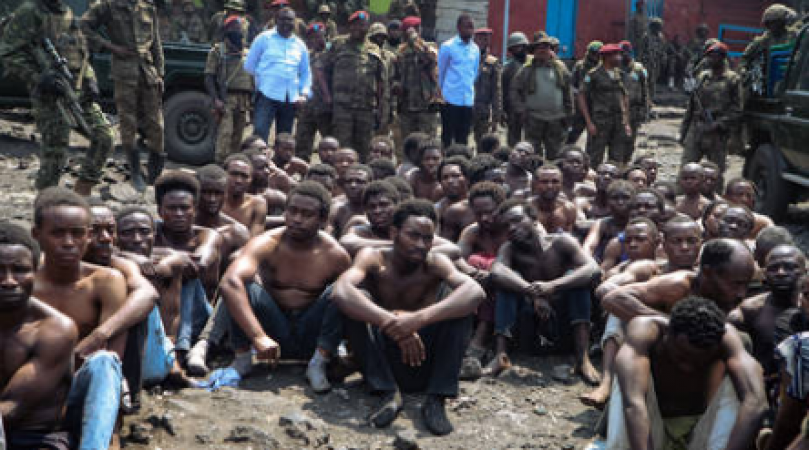
Congo: A violent crackdown on protests in the Democratic Republic of the Congo (DRC) has resulted in dozens of deaths, according to the United Nations.
The unrest erupted in response to the passing of a new electoral law that critics argue will disenfranchise millions of voters. The controversial law, approved by the parliament despite widespread opposition, has intensified tensions in the country and threatens to undermine democratic progress.
This report delves into the causes and consequences of the deadly crackdown on protests in the DRC, examining the political backdrop, international responses, and the impact on the nation's fragile democracy.
Backdrop: President Tshisekedi's Controversial Rule
The Democratic Republic of the Congo has experienced a tumultuous political landscape marked by instability, violence, and a legacy of authoritarian rule. President Felix Tshisekedi came to power in 2019 following the death of long-time dictator Joseph Kabila, offering hope for democratic reforms and improved governance. However, Tshisekedi's tenure has been marred by allegations of unfulfilled promises and an inability to address the needs of ordinary Congolese citizens.
Controversial Electoral Law: A Blow to Democracy
The catalyst for the recent protests is a new electoral law that poses a significant setback for democracy in the DRC. The law introduces measures that make voter registration more challenging, raising concerns about disenfranchising millions of voters. Additionally, it grants the president enhanced authority to appoint members of the electoral commission, fueling fears of manipulation and electoral misconduct. The law's passage through parliament exacerbated existing tensions within Congolese society.
Also Read: Russia Claims to Foil Attack on Crimea Bridge Amid Escalation in Eastern Ukraine
Escalation of Protests and Violent Crackdown
The demonstrations began in response to the new electoral law's adoption, with civil society groups and the Catholic Church at the forefront of opposition. Security forces responded to the protests with deadly force, opening fire on demonstrators in Kinshasa and other cities. The United Nations reported at least 37 fatalities in Kinshasa, while acknowledging that the actual death toll could be higher. Witnesses alleged that security forces employed indiscriminate violence against peaceful protesters.
International Outcry and UN's Call for an Investigation
The international community swiftly condemned the violent crackdown and expressed alarm over the situation in the DRC. The United Nations called for an impartial investigation into the killings and urged the Congolese government to respect the right to peaceful protest. The UN's response highlights the gravity of the events and the urgent need for accountability.
Historical Context: Fragile Democracy and Political Instability
The DRC has a history of political instability and violence that has impeded democratic progress. The legacy of authoritarian rule, civil wars, and power struggles has hindered the country's ability to build strong democratic institutions and ensure the protection of fundamental rights. The recent developments serve as a stark reminder of the challenges that continue to plague the nation's democratization efforts.
The Impact on Democracy and the Way Forward
The new electoral law, combined with the violent suppression of protests, poses a grave threat to democracy in the DRC. It further polarizes the nation, raises concerns about electoral integrity, and undermines faith in democratic processes. The international community must exert pressure on the Congolese government to uphold the right to peaceful protest and hold those responsible for the killings accountable.
Also Read: Egyptian People Smuggler Jailed in the UK After Incriminating Selfies on Migrant Dinghy
The deadly crackdown on protests in the Democratic Republic of the Congo, triggered by the passage of a controversial electoral law, has brought international attention to the nation's fragile democracy. The need for impartial investigations, accountability, and respect for the right to peaceful protest cannot be overstated. The DRC stands at a critical juncture, where the choices made in response to these events will significantly impact the nation's democratic future.